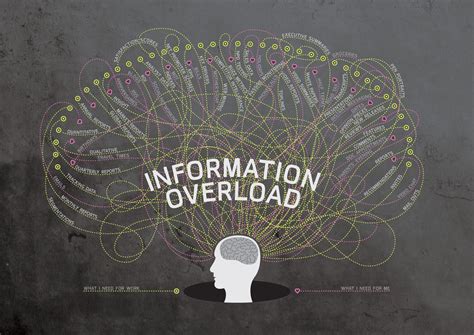In our hyperconnected world, the phrase ‘information overload’ has transitioned from a theoretical concern to a daily, lived experience. As innumerable digital platforms vie for our attention, it’s easy to get lost in an endless cycle of consuming content that doesn’t truly enrich us. Consider the countless hours spent scrolling through feeds, watching videos, and reading articles that, while momentarily entertaining, leave little lasting impact. This phenomenon has been aptly described as ‘intellectual obesity,’ a state where our minds become bloated with trivial and often fragmented information.
One notable observation from users of platforms like YouTube is the design intent behind feature recommendations. Platforms employ sophisticated algorithms to keep users engaged by surfacing enticing content. As one user mentioned, they often find themselves drawn in by the endless recommendations, not because the content is inherently low-quality, but because there’s simply too much that piques their interest. This endless cycle of consumption often requires intentional intervention, such as applications or techniques to curb unsolicited content delivery.
YouTube extensions like Unhook or Clickbait Remover attempt to manage this overload by removing side recommendations and altering clickbait thumbnails. Another popular tool, SponsorBlock, crowdsources the identification of sponsored content, thereby helping viewers skip portions of videos that aren’t directly relevant to their interests. These tools reflect a growing awareness and proactive stance towards managing digital consumption.
Moreover, the concept of ‘edutainment’—content that is part education, part entertainment—has sparked debate among users. Educational YouTube channels like Veritasium and Wendover Productions are popular, but critics argue that their simplified narratives may sacrifice depth and accuracy. While these videos may serve as gateways to deeper learning, they risk leaving viewers with a superficial understanding of complex subjects. As one commenter pointed out, these videos often present rich topics without diving into the nuances that come with rigorous academic scrutiny, akin to watching someone play a song and thinking you can perform similarly without practice.
The key to mitigating the intellectual obesity crisis lies in discerning how we engage with digital content. Conscious consumption, where we critically assess the value and purpose of what we watch or read, can prevent us from falling into the trap of mindless scrolling. A helpful technique could involve ‘timeboxing’, where one allocates specific periods to consume content and does so deliberately, avoiding the autoplay features and endless feeds that platforms design to keep us hooked. For example, actively deciding to watch an educational video for a set amount of time and then moving on to another task can ensure productive use of one’s digital time.
Lastly, it’s crucial to acknowledge the social and neurological effects of our current information consumption habits. The dopamine responses triggered by new information can foster addictive behaviors, similar to the consumption of junk food. As some users noted, consuming politically charged or sensationalist content can lead to increased anxiety and a distorted perception of reality. Here, the utility of ‘information diets’ comes into play. Just as we aim for balanced, nutritious diets for our physical health, we must seek to balance our informational intake by focusing on high-quality, informative content and minimizing exposure to the digital equivalent of empty calories.
In conclusion, while we have unprecedented access to information, the challenge lies in sifting through the noise to find the signal. By employing mindful consumption practices, leveraging tools to filter out low-value content, and understanding the neurological triggers of our digital behaviors, we can cultivate a healthier and more productive relationship with the information we consume. Our mental health and well-being depend on our ability to navigate this age of intellectual overload effectively.


Leave a Reply